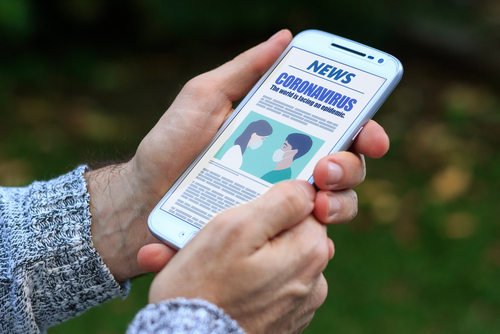
Before the outbreak of a pandemic that has turned our reality into a surreal dystopia, brand safety practices seemed to be, like many other things in life, clear and logical. However, Covid-19 is shaking up the world and the advertising industry as we know them. But is Covid-19 changing brand safety practices too?
Even though it was already clear that just blacklisting as such was not enough to protect brands, many advertisers have decided to quarantine all the keywords associated with coronavirus. It seemed like a wise thing to do, right? Isolating the worst aspect of a terrible reality and protecting their brands from any association with the virus. However, is that actually a good idea?
Is blacklisting enough to achieve total brand safety?
If you ask most publishers, they will probably say “no, it isn’t”. If you ask many advertisers, it’s not that clear anymore. With everyone online all the time, the Internet is going through a massive stress test these days and the most common search terms are “coronavirus” and “covid-19”. They are the most important factors of our reality right now. Worldwide. Therefore they are the most important news too. So, just to say this clear: some advertisers are blacklisting all keywords related to reality right now.
This has a terrible impact on publishers, who can’t monetize the high traffic volume generated these days. BuzzFeed News reports more than 2 million ads were blocked from appearing on relevant news sites in the first three weeks of March, amid fears of ads being associated with the pandemic. This along with the fact that advertising spend has been reduced in many cases, is leading some publishers to a deeper crisis in a moment where they are already making a huge effort to keep delivering important, updated information about the pandemic. Let’s not forget that some of them have taken down their paywalls.

Brand safety should be in-line with publisher security
The unprecedented decision made by many publishers about offering their content for free contrasts sharply with the advertising restrictions and reductions they are dealing with. Despite every negative aspect of the pandemic, publishers understand that reality can’t be ignored. The question is: shouldn’t advertisers do the same? Is there not a better way to protect their brands? Is blacklisting always correct?
The key aspect here is probably controversial, because how can a global reality be blacklisted? What the pandemic has made very clear is that not everything is black or white, so maybe it’s time for brands to look for alternatives. Changing their blacklisting criteria is one. Establishing a direct relationship between publishers and advertisers is maybe one of the best ones too. Advertisers would be able to choose and control in advance, without the need for a blacklist. This way, brand safety would also mean publisher security. In an environment where there is mutual dependence, putting publishers’ stability at risk, will also end up making advertisers weak, because their options will be massively reduced.
Amongst the many things that Covid-19 has taught us, there is one that we shall not forget: we are in this together, advertisers, publishers, agencies, marketers. So, whenever you think about protecting your brand, remember to protect your publishers too.
How are marketers performing brand safety practices?
Blacklisting as a way to keep brand safety seems like a method that falls short for many marketers. Blacklisting covid-related and other negative keywords can even be detrimental for publishers.
How should brand safety be during times of crisis?
In an industry where publishers and brands work together, the best way to improve security is by protecting both parts and having direct and nurturing partnerships.